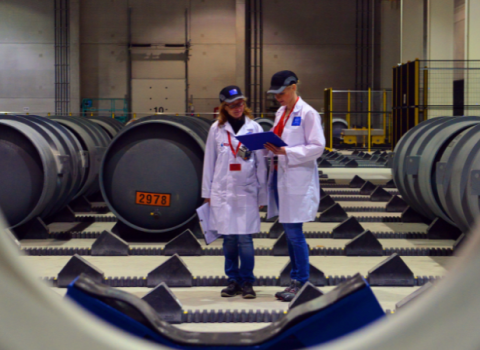Collaboration
Deinove, the world's leading specialist in the application of deinococci bacteria to biofuels and green chemistry, has agreed a partnership with VTT Technical Research Centre of Finland, a leading European research centre on industrial enzymes and bioprocesses.
VTT has over 25 years’ experience of lignocellulose degrading enzymes, such as cellulases, hemicellulases and other catalysts for the production of chemicals from biomass sugars. “In addition, the organisation has the skills and infrastructure to perform R&D in metabolic engineering, synthetic biology and fermentation processes,” said Jaques Biton, Deinove CEO.
Ten senior VTT researchers will team up with Deinove and its French academic partners from CNRS and INSA to leverage the properties of Deinococcus bacteria, which have the ability to digest and ferment biomass, in the development of an integrated process for the bioproduction of ethanol and chemicals from renewable feedstocks.
“We are particularly excited to have an opportunity to work on a new industrial microorganism with exceptional robustness and the ability to digest biomass,” said Kristiina Kruus, Chief Research Scientist and Research Coordinator from the VTT Bio and Process Technology Cluster.
The objective of the collaboration is to evaluate the different Deinococcus candidate strains screened by Deinove for cellulosic ethanol production. The process will then be scaled-up and tested in an industrial pilot by the French sugar production company Tereos. Financial terms were not disclosed.
Paris-based Deinove currently has 15 staff and several collaborative programmes with the CNRS, the University of Paris V and INSA Toulouse. It was set up in late 2006 by Philippe Pouletty, Managing Partner at the private equity firm Truffle Capital and Miroslav Radman, Professor of Cell Biology at Paris-Descartes University, Radman elucidated the genetic mechanisms behind the extraordinary natural properties of the bacterium Deinococcus, on which the company’s strategy is based.





 A unique international forum for public research organisations and companies to connect their external engagement with strategic interests around their R&D system.
A unique international forum for public research organisations and companies to connect their external engagement with strategic interests around their R&D system.